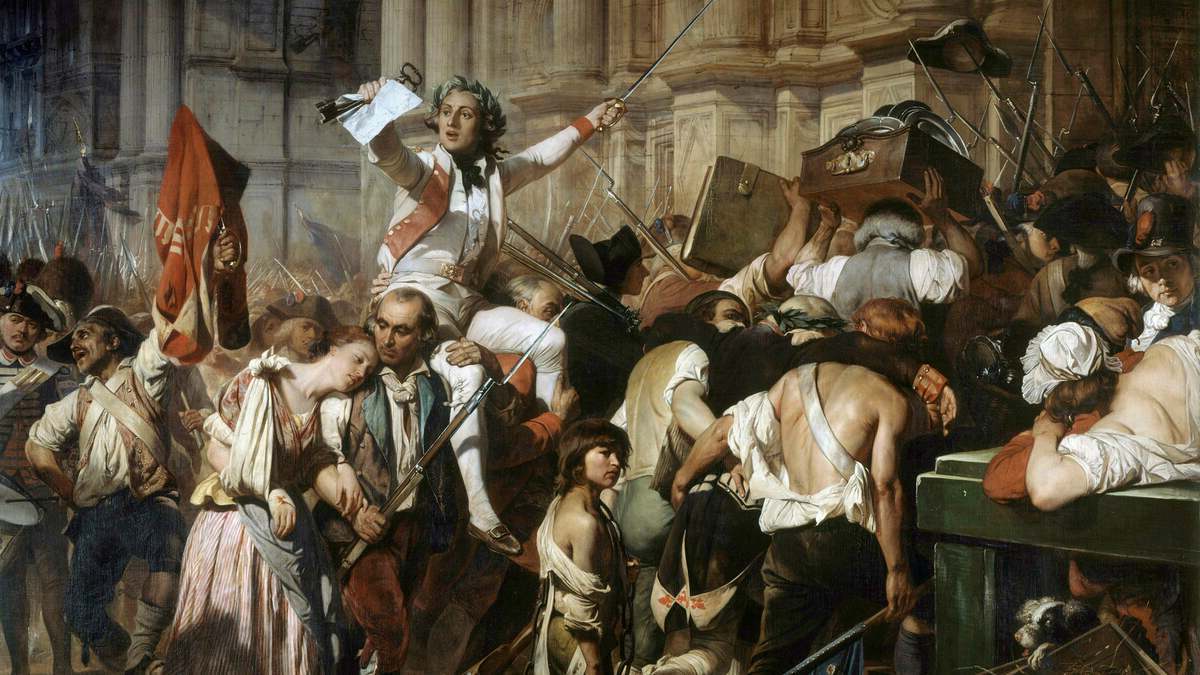Hidden Truths About The French Revolution You Never Knew

The French Revolution is often remembered for its dramatic events like the storming of the Bastille and the Reign of Terror. But did you know there are many lesser-known facts that shaped this pivotal period in history? For instance, the revolution didn't just happen overnight. It was the result of years of social, economic, and political tension. Also, not everyone in France supported the revolution. Many people, especially in rural areas, remained loyal to the king. Additionally, the revolution had a significant impact on other countries, inspiring similar movements around the world. Ready to learn more about these hidden truths? Let's dive in!
The French Revolution's Secret Societies
The French Revolution wasn't just about storming the Bastille or the Reign of Terror. Secret societies played a crucial role behind the scenes, influencing key events and decisions.
The Jacobin Club: This influential political group started as a debating society. They became radical and played a significant role in the Revolution's most violent phases.
The Cordeliers Club: Known for their radical views, they pushed for direct democracy and were instrumental in the fall of the monarchy.
The Society of the Friends of Truth: Also called the Social Club, they promoted Enlightenment ideas and influenced revolutionary leaders.
Women Warriors of the Revolution
Women weren't just passive observers during the French Revolution. They took to the streets, fought for their rights, and influenced the course of history.
Olympe de Gouges: A playwright and political activist, she wrote the Declaration of the Rights of Woman and the Female Citizen, challenging male authority.
Charlotte Corday: Known for assassinating Jean-Paul Marat, she believed her actions would save the Republic from further bloodshed.
Théroigne de Méricourt: A fierce advocate for women's rights, she participated in the storming of the Bastille and other key events.
The Role of Propaganda
Propaganda played a massive role in shaping public opinion during the French Revolution. From pamphlets to posters, revolutionary leaders used various means to spread their message.
Jean-Paul Marat's Newspaper: "L'Ami du Peuple" was a radical publication that incited anger and violence against perceived enemies of the Revolution.
Jacques-Louis David's Art: As a painter, David created powerful images that glorified revolutionary ideals and leaders, influencing public sentiment.
Revolutionary Songs: Tunes like "La Marseillaise" became anthems of the Revolution, rallying people to the cause.
The Dark Side of the Revolution
While the French Revolution aimed to bring liberty and equality, it also had a darker side filled with violence and terror.
The Reign of Terror: Led by Robespierre, this period saw mass executions and widespread fear as the revolutionary government sought to eliminate its enemies.
The September Massacres: In 1792, revolutionaries killed thousands of prisoners, fearing they would join a counter-revolutionary plot.
The Vendée Uprising: A royalist rebellion in western France, brutally suppressed by the revolutionary army, leading to significant loss of life.
The Revolution's Global Impact
The French Revolution didn't just change France; it had a ripple effect across the globe, inspiring other movements and revolutions.
The Haitian Revolution: Inspired by the French Revolution, enslaved Africans in Haiti rose up against their colonial rulers, leading to the first successful slave revolt.
The American Revolution: While it preceded the French Revolution, the two were interconnected. French support for American independence helped spread revolutionary ideas.
The Latin American Wars of Independence: Leaders like Simón Bolívar were inspired by the French Revolution to fight for independence from Spanish rule.
The French Revolution's Lasting Impact
The French Revolution changed the world in ways many don't realize. It wasn't just about overthrowing a monarchy. It introduced ideas of liberty, equality, and fraternity that still influence societies today. The Reign of Terror showed the dangers of extreme political movements. The rise of Napoleon Bonaparte reshaped Europe and led to new political boundaries. Ordinary people played crucial roles, proving that collective action can drive significant change. The revolution also inspired other movements globally, from Latin America to Asia. Understanding these hidden truths gives a deeper appreciation of this pivotal period. The French Revolution wasn't just a historical event; it was a catalyst for modern democracy and human rights. Its legacy continues to shape our world, reminding us of the power of ideas and the importance of fighting for justice.

